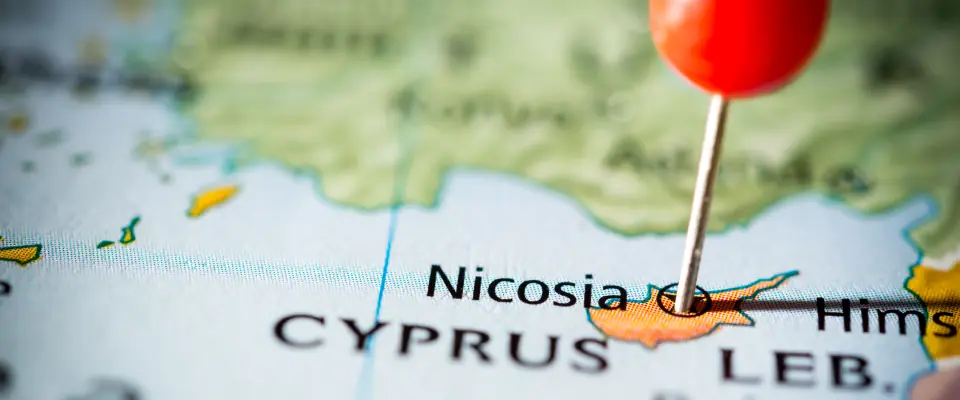The validity of games of chance and betting in all their manifestations has long been the object of dispute for centuries, and the issue has only grown in magnitude with the introduction onto the market of Internet-based sportsbooks and casinos. These platforms are often tricky to license and regulate, due to their offshore bases and highly attractive features that draw in punters.
For a deeper understanding of how betting markets evolve under changing rules and incentives, Sportshub’s feature on building your bankroll with smart futures and rewards explores how modern wagering systems reward informed bettors under different jurisdictions.
For this reason, the way gambling providers are governed differs immensely between countries. This divide is especially stark when looking at the examples of Cyprus and Morocco, two jurisdictions with distinct approaches to regulating iGaming brands and taxing winnings derived from betting.
Online casinos in Cyprus are particularly popular due to the country’s favorable laws. At the same time, Morocco is a relatively new destination for casinos and sportsbooks, with a developing legal framework for the iGaming industry.
How Cyprus Governs Gambling Brands
Gambling regulations in Cyprus are upheld in accordance with the 2012 Betting Law, which divides the gambling industry in the country into land-based and online sports betting sectors. These two sectors of the Cyprus gambling landscape are governed by the Cyprus Gaming and Casino Supervision Commission (CGCSC) and the National Betting Authority (NBA), respectively.
Land-based casinos can legally operate in Cyprus only as part of resorts, hotels, and spas. Operating a valid land-based casino license is required, and the types of games are limited to table and card games, while slot machines are allowed to a limited capacity.
On the other hand, online sports betting is less strictly regulated. While online sportsbooks require licenses of their own, sports betting is broadly popular across Cyprus, and some of the most popular international and local brands are easily accessible to users who set up accounts under their own name and verify their identity and source of funds.
However, online casinos are not so lucky. Online poker, bingo, and other casino games are still banned in Cyprus and strictly blocked by local ISPs.
As for taxation and licensing fees, they affect both sides of the gaming procedure:
- Providers need to obtain a 1-year (EUR 30,000) or 2-year (EUR 45,000) license, while maintaining a share capital of at least EUR 550,000, and paying 13% of their net gaming revenue in annual taxes
- Bettors who win more than EUR 5,000 must pay a 20% tax on their winnings, which is withheld at source by the operators
Overall, while Cyprus may not be the single most casino-friendly jurisdiction in the world, the rules that govern the betting market in the country are clear, concise, and easy to follow, for both operators and players alike.
The Emergence of Morocco in the Gambling Industry
A relatively unexplored destination for gambling, Morocco allows land-based casinos and betting on horse racing, as well as lotteries and other games of chance. The Ministry of Interior hands out licenses based on the 1966 Dahir Law, which permits traditional casino experiences to be conducted in a regulated environment.
2025 has proven to be a pivotal year for the Moroccan gambling industry, as the 2025 Finance Bill introduced a 30% withholding tax and a 2% solidarity levy, both of which apply to winnings generated from offshore platforms.
To understand how betting strategies evolve within developing gaming markets, Sportshub’s analysis of betting quarter strategies in championship games explains how timing, regulation, and risk management intertwine to shape real-world betting outcomes.
It is also worth noting that there is no comprehensive legal framework for online casinos in Morocco, and while not expressly legal, offshore casinos are still accessible to Moroccan punters. This also comes with limited consumer protection for players based in the country and playing at international casinos and sportsbooks.
Morocco appears to be positioning iGaming as a key growth sector. With a young, tech-savvy population – 66% under age 35, as well as investments in innovation hubs like Rabat Gaming City, plus ongoing legal and tax reforms, hint at a future domestic regulation model.
Nonetheless, enforcement in the online domain remains limited for now.
Should You Choose Cyprus or Morocco in 2025?
The regulatory landscape offered by Cyprus is considerably more streamlined and easier to follow for local players of both sportsbooks and online casinos, while Morocco is an emerging iGaming market that does not have concrete local rules that govern online sports betting and casino gambling, which also means that local punters have unrestricted access to offshore platforms.
For more insights and updates on regional betting laws, visit Sportshub’s betting news section for weekly breakdowns of gaming trends across international markets.
Therefore, experienced punters are more likely to navigate the gambling laws enforced in Cyprus, provided they are comfortable with paying 20% in taxes on winnings over EUR 5,000.
On the other hand, the Moroccan approach to regulating the industry is still in its infancy and slightly vague for those unfamiliar with how local regulations work and what platforms they have access to.




